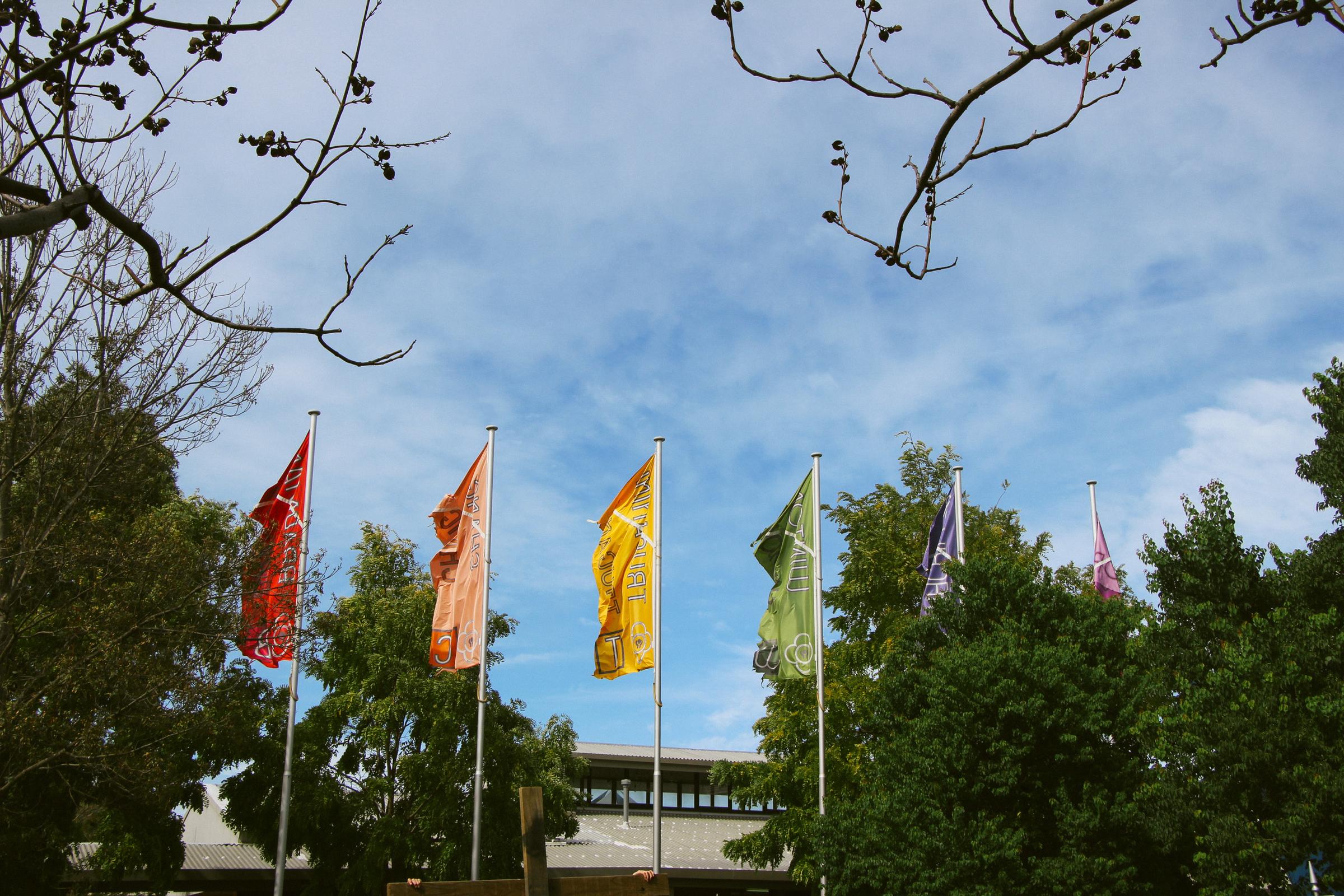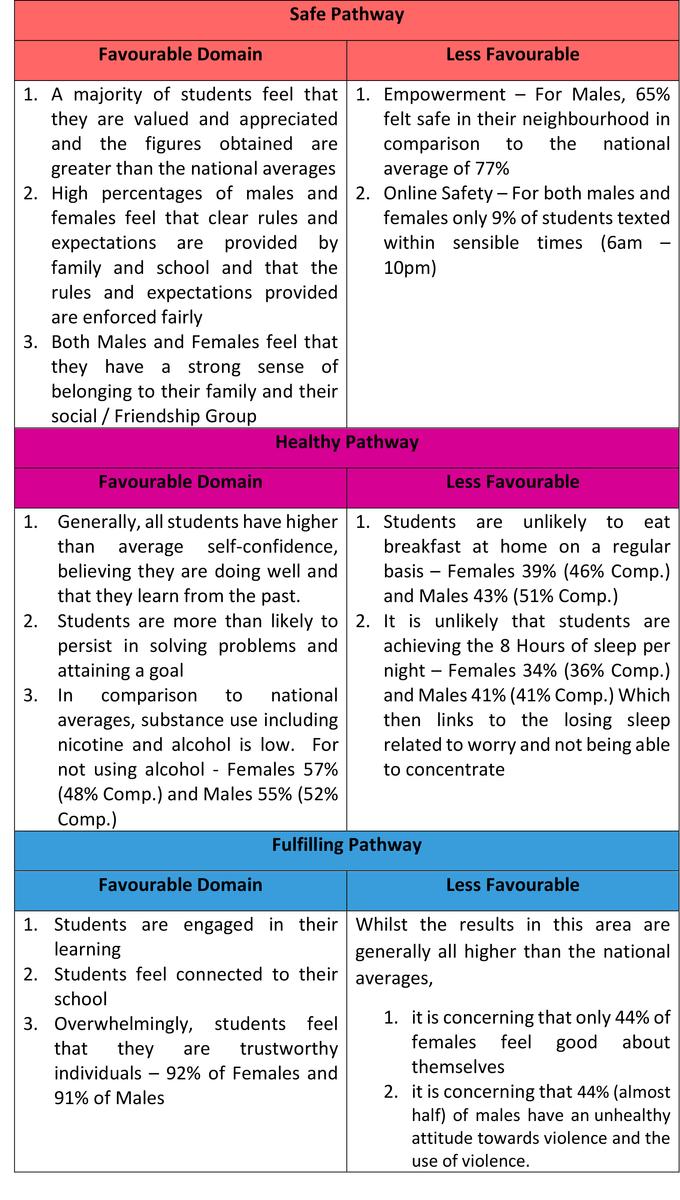Deputy Principal's Report

Developing Resilience in our Community
Catholic Regional College has valued the relationship with Andrew Fuller, renowned clinical psychologist and Resilient Youth Australia through undertaking an in-depth analysis of the Resilience Survey data obtained from our students in 2017. The data obtained from the surveys provided our community with evidence surrounding areas that may affect our students’ resilience and areas that we are able to target for development. The collection of this data aimed to assist in creating strong and resilient students and communities. Catholic Regional College promotes the importance of developing resilience as we concur that through increasing resilience, we will be able to improve learning outcomes and pathways for students. We all acknowledge the decreasing levels of resilience in our children and understand that this is not only a school issue. We have had the pleasure of working with our parents and students to develop an understanding which may lead to program options for improving data, increasing resilience and providing a strong future for our students.
The College Leadership team worked with key representatives from Resilient Youth Australia to review and understand the obtained data whilst in attendance at the annual Leadership conference. Whilst much data was obtained through the survey, key representatives and staff summarised the key positives and areas for development in three main focus areas including: Healthy Lifestyle, Safe Environment and Fulfilment. The data from the survey not only provided the results of our students but compared these results to national averages of students of the same age. The focus areas included:
The Year 12 Parent Information Evening has evolved over the years and this year, parents worked in collaboration to review the above Resilience data and provide guidance surrounding programs to improve data. Valuable input from parents was gathered and the feedback provided by both staff and parents was positively linked to the provision of input in child development and the opportunity to collaborate with others. Also through the evening, the College continued to work on equipping families with knowledge and skills that would provide guidance to their children in their senior years of education.
Students were also encouraged to have their input into the above data. Groups of students were invited to a working lunch held in Quatrefoils Restaurant. Like the parent groups, students based discussions around explanations around the above data and what programs they would like implemented to improve the level of resilience in their cohort.
Moving forward the Leadership Team, Cluster Coordinators and the Student Leadership Convenor will collate all of the information obtained and begin the implementation of programs, which we envisage, will have input from students.
Collaborating with our Community
The College sought to engage with families in our community from a range of Culturally and Linguistically Diverse Backgrounds especially those whose children may be most at risk as new arrivals or on a refugee visa. Our Catholic Faith calls us to extend our hearts in solidarity and we were very much heartened by the meetings we were able to be involved in. Humbling is the best way to describe our experience as Brendan and I sat and listened, learned and sought to clarify how we as a community might further work in partnership with families. It is our prayer that these conversations will continue and that our first gathering will be the first of many more.
Uniform
At the commencement of term two, Monday 16th April, all students are required to wear the winter uniform.
Below is a description of the uniform that is required for terms 2 and 3. Please note that we have introduced Slacks for the girls as part of the Winter uniform. This item is now available from the uniform shop. Stocks are low and we encourage families to be proactive in ordering this item.
We ask that parents and students continue to support the College in maintaining a high standard of presentation for the students of our schools.
Boys
- Blazer: CRC Blazer
- Trousers: Navy Blue with CRC monogram
- Winter Shirt: White long-sleeve shirt with CRC monogram. Tucked in
- Jumper: CRC Jumper can only be worn to and from the College if under the Blazer
- Tie: To be done up to the shirt collar and worn correctly
- Shoes: Black leather lace up school shoes. No street shoes or black runners
- Socks: Navy Blue
- Scarf: Plain Navy Blue
Girls
- Blazer: CRC Blazer
- Winter Kilt: College kilt to be worn to the knee
- Winter Slacks: Navy Blue with Pinstripe
- Winter Shirt: White long-sleeve shirt with CRC monogram. Tucked in
- Jumper: CRC Jumper can only be worn to and from the College if under the Blazer.
- Tie: To be done up to the shirt collar and worn correctly.
- Shoes: Black leather lace up school shoes. No slip on, ballet or T-Bar style shoes.
- Socks: Long Navy Blue Socks or Navy Blue Tights
- Scarf: Plain Navy Blue
Please Note: The CRC Sydenham is the only sport uniform which is acceptable. Black leggings or alternate jumpers are not acceptable. Students should only be in sport uniform when their learning program requires, when they are participating in a SACCSS sporting event or training and / or when the student is involved in Cluster Sport.
School Holiday Arrangements for Students
Study Hall will not be available for Students during the Term 1 holiday break.
The Es – ATAR and the Unscored VCE Program
At the end of each academic year, the College uses data from student results in Year 11 VCE units to create an estimated ATAR (Es-ATAR) for all students who completed Year 11 VCE. The Es-ATAR is determined through an analysis of exam scores and SAC results for all Year 11 VCE students in their unit 1&2 VCE studies. Students are provided with a predicted ATAR range between 1 and 99.95 to indicate their relative position within the group of students in their year level at the College.
Our experience in using this data indicates that the Es-ATAR is a good predictor of student performance in Year 12. As such, this data enables the College to have informed discussions with families and students about the Year 12 learning program where they will be able to achieve success in order to make an effective transition to a post-school destination.
Data may indicate that some students are better suited to an Unscored VCE Program (UVP). In 2017 approximately 60 students undertook the UVP with very pleasing post school destinations. Every student made a successful transition into a full time program.
Unscored VCE Program - Destination Data 2017
It is our experience that students who do not wish to enter university study when they complete school are provided with an authentic pathway by completing their studies in the UVP. Furthermore, some students will show through their level of achievement in Year 11 that they are not suited to pursue scored assessment in Year 12. Students who gain an Es-ATAR of below 45 may be contacted by the College to discuss their placement into the Unscored VCE Program. Parents have been sent their child’s Es-ATAR in a mailout.
As outlined by the Victorian Curriculum and Assessment Authority (VCAA), the VCE is awarded on the basis of satisfactory completion of units according to VCE program requirements. The decision regarding satisfactory completion of a unit is distinct from the assessment of levels of achievement. Whilst School Assessed Coursework (SAC) and School Assessed Tasks (SAT) are often used to determine both satisfactory completion of a unit and assessment for a study score, it is not a requirement that these tasks be scored. It is possible for students in the UVP to be assessed for satisfactory completion of outcomes in tasks that may be more suited to their learning style.
A student whose work is not scored will still be eligible to complete the VCE.
Students in the UVP do not sit end-of year examinations and do not receive an Australian Tertiary Admittance Rank (ATAR). In effect, this means that they will not qualify for direct entry into most university courses. There are, however, many post school study programs that do not require an ATAR. There are some courses, which do require students have some scored subject for their entrance requirement and in these situations, students have an opportunity to undertake a hybrid program which encompasses both unscored and scored subjects.
The philosophy “every student, every pathway” drives the development of learning programs at our College. It is our aim to provide our students with a broad range of learning programs that will engage them whilst they are with us. The Unscored VCE Program honours the College’s commitment to this philosophy.
All students who enter the Unscored VCE Program will receive extensive careers counselling which will provide them with information on pathways that do not require an Australian Tertiary Admittance Rank (ATAR). Students that are in the UVP are required to attend a program at the College during the first two weeks of term 4 that aims to facilitate their school to study, or school to employment transition. Completion of this program is a requirement for graduation.
If you have any queries about the nature of VCE assessment, the Es-ATAR or the Unscored VCE Program please do not hesitate to contact the College on 9361 0000.
2018 Mid Semester Reports and Parent / Teacher / Student Interviews
Parent-Student-Teacher interviews to discuss student progress and Mid Semester Reports were held on Wednesday March 28 and Thursday March 29
These interviews aim to provide parents with the opportunity to meet subject teachers in order to discuss academic progress and learning strategies to achieve optimal academic achievement for the remainder of the year.
Mid Semester Reports are available for parents to view on the Parent Access Module (PAM). These reports provide an assessment of progress thus far in 2018. In the Parent/Student/Teacher interviews families were provided the opportunity to undertake detailed conversation with teachers and increase understanding of how support can be provided to students as they progress through their senior secondary education program.
We strongly recommend that parents log in to PAM on a regular basis to view student results and feedback on learning tasks. This feedback is provided regularly by all subject teachers.
Chantelle Gauci
Deputy Principal

